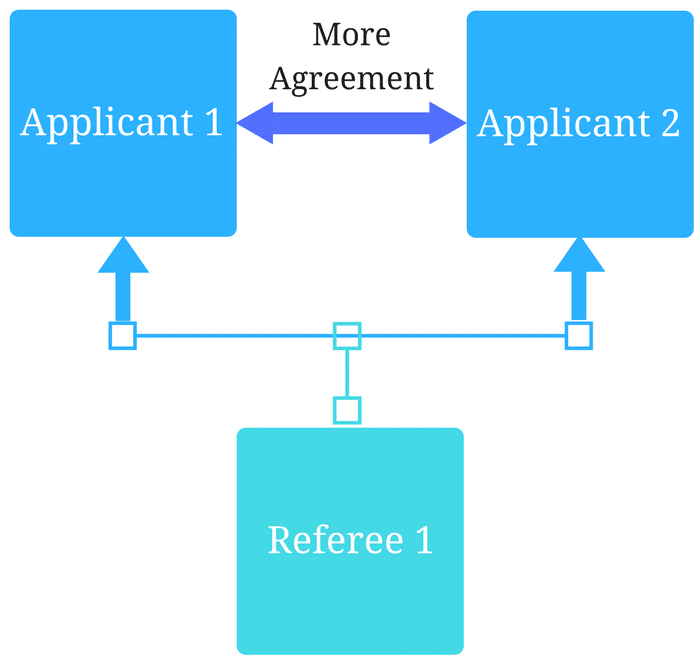How To Implement Competency-Based Medical Education (CBME) in Undergraduate Medical Education

May 12, 2025
Competency-Based Medical Education (CBME) is transforming how U.S. medical schools train future physicians. With the release of the new Foundational Competencies for Undergraduate Medical Education (UME) in December 2024 by the AAMC, AACOM, and ACGME, institutions must now consider how to integrate these updated guidelines into their curricula, assessments, and institutional culture.
In a recent episode of the Holistic Success Show, we heard from higher education experts Dr. Kelly Dore, Dr. Muhammad Zafar Iqbal, and Matthew Kay, who all discussed the implementation of Competency-Based Medical Education (CBME) in Undergraduate Medical Education. (UME)
What Is Competency-Based Medical Education
CBME shifts the focus from traditional, time-based training to an outcomes-based model where students progress upon demonstrating proficiency in key competencies. This model supports flexible learning pathways and emphasizes skills mastery over seat time.
Key Challenges in Implementing CBME at the UME Level
Transitioning to CBME presents a number of challenges in undergraduate medical education:
- Curriculum Alignment: Integrating competencies across courses and clinical experiences requires significant restructuring and institutional alignment.
- Assessment Overhaul: CBME favors continuous, formative assessment over high-stakes exams. Implementing this shift requires new tools, training, and a cultural change toward feedback-focused learning.
- Faculty Workload and Training: Faculty must provide personalized, frequent feedback—a resource-intensive shift that may strain already limited faculty-to-student ratios.
- Cultural Resistance: Faculty and students unfamiliar with CBME may be hesitant to embrace its demands, especially without strong professional development and clear institutional support.
How Can Medical Schools Approach CBME Without Feeling Overwhelmed?
A phased, strategic approach to CBME implementation is critical. Rather than attempting a complete transformation all at once, Undergraduate Medical Education (UME) programs should focus on manageable, incremental changes. One effective starting point is to pilot CBME principles in select courses or clerkships, allowing faculty and students to experiment, reflect, and adjust before scaling up.
Another smart strategy is to collaborate with Graduate Medical Education (GME) programs. Many GME institutions have already navigated the complexities of CBME, and their experiences can offer valuable lessons for undergraduate programs looking to avoid common pitfalls.
Schools can also make progress by leveraging existing CBME tools and platforms. Using validated frameworks and assessment models not only saves time and resources but also ensures alignment with broader medical education standards.
Finally, building faculty capacity is crucial. Schools should invest in professional development that equips educators with the skills to deliver effective feedback, conduct competency-based assessments, and serve as learning coaches in a CBME environment.
Final Thoughts: Why Competency-Based Medical Education Matters
While challenging, implementing competency-based education in medical schools is a critical evolution in preparing students for real-world clinical practice. Schools that focus on incremental change, faculty engagement, and continuous improvement are more likely to succeed in this transition.
By embedding flexibility and collaboration into their strategy, institutions can ensure that CBME leads to stronger, more confident, and well-prepared healthcare professionals.
Want to Learn More?
Watch our latest Holistic Success Show episode on how CBME is reshaping undergraduate medical education.
About our Experts
The following experts contributed to the insights in this article.
Dr. Kelly Dore is a Cognitive Psychologist with a PhD in Assessments and Higher Education. She is an Adjunct Associate Professor in the Department of Medicine, Division of Education & Innovation at McMaster University and is also Co-Founder, VP of Science and Innovation, and Board Member at Acuity Insights. She is the co-creator of Casper, the most widely-used situational judgment test in higher education. She also co-developed the Duet assessment and supports innovation across all product lines at Acuity. She has worked with hundreds of programs across higher education globally, bringing together insights and evolving the way we think about applicant, program, and student success.
Dr. Muhammad Zafar Iqbal is a Research Scientist at Acuity Insights, with a PhD in health professions education. Dr. Iqbal specializes in CBME, assessment practices, and faculty development.
Matthew Kay is an Enterprise Account Executive at Acuity Insights with twenty years of experience in technology, education, and business development.
Related Articles

How interviews could be misleading your admissions...
Most schools consider the interview an important portion of their admissions process, hence a considerable…
Reference letters in academic admissions: useful o...
Because of the lack of innovation, there are often few opportunities to examine current legacy…
